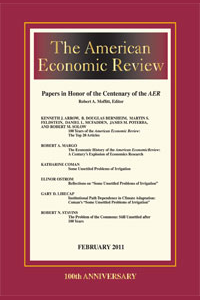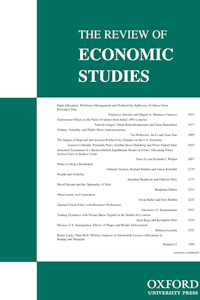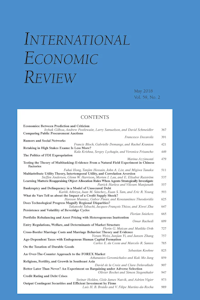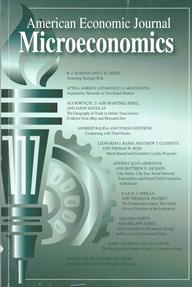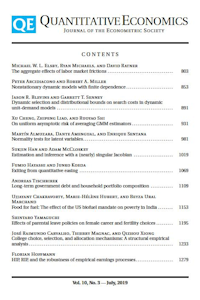
Bodenstein, M., Corsetti G. and Guerrieri, L.
Social Distancing and Supply Disruptions in a Pandemic
Quantitative Economics
Vol. 13(2) pp. 681-721 (2022)
Abstract: We integrate an epidemiological model, augmented with contact and mobility analyses, with a two-sector macroeconomic model, to assess the economic costs of labor supply disruptions in a pandemic. The model is designed to capture key characteristics of the U.S. Input-Output Tables with a core sector that produces intermediate inputs not easily replaceable by the other sectors, possibly subject to minimum-scale requirements. Using epidemiological and mobility data to inform our exercises, we show that the reduction in labor services due to the observed social distancing (spontaneous and mandatory) could explain up to 6-8 percentage points of the roughly 12 percent U.S. GDP contraction in the second quarter of 2020. We show that public measures designed to protect workers in core industries and occupations with tasks that cannot be performed from home, can flatten the epidemiological curve at reduced economic costs—and contain vulnerabilities to supply disruptions vis-à-vis a new surge of infections. Using state-level data for the United States, we provide econometric evidence that spontaneous social distancing was no less costly than mandated social distancing.
Keywords: COVID-19, epidemic, infectious disease, recession
JEL Codes: E10, E30, I10
Author links: Giancarlo Corsetti
Publisher's Link: https://doi.org/10.3982/QE1618 ![]()
COVID-19 Economic Research Special Feature: Can Social Distancing Improve the Trade off Between Health and the Economy?
Cambridge Working Paper in Economics Version of Paper: Social Distancing and Supply Disruptions in a Pandemic, Bodenstein, M., Corsetti, G. and Guerrieri, L., (2020)

